In keeping with Accreditation Council for Continuing Medical Education (ACCME) standards for commercial support, AABB asks everyone who is in position to control the content of a continuing medical education activity and those that participate in the development of a continuing medical education activity to disclose all relevant financial relationships with commercial interests. ACCME defines a commercial interest as any entity producing, marketing, reselling, or distributing health care goods or services consumed by, or used on, patients. (Providers of clinical services directly to patients are not commercial interests). A relevant financial relationship is a relevant financial relationship in any amount occurring within the previous 12 months. Note that ACCME requires relevant financial relationships of spouses or partners to be included for conflict of interest disclosure purposes. Below are the relevant financial relationships reported by AABB for the AABB Cellular Therapies Certificate Program:
Program planners include Naynesh Kamani, MD, Kathy Loper, MHS, MT(ASCP) and Christina Celluzzi, PhD, MS. The program planners do not have any financial relationships to disclose.
All relevant financial disclosures that occurred during the development of the AABB Cellular Therapies certificate program are provided below each contributing faculty member.
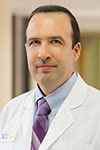 Aleksandar Babic, MD, PhD
Aleksandar Babic, MD, PhDMedical Director, St. Louis Cord Blood Bank/St. Louis University School of Medicine, Division of Hematology and Medical Oncology, St. Louis, MO
Dr. Babic earned his M.D. degree at the University of Belgrade School of Medicine in Belgrade, Yugoslavia, and his PhD in molecular genetics at the University of Illinois College of Medicine in Chicago. He completed a research fellowship at the Immune Disease Institute in Pathology at Harvard Medical School, residency in Pathology, as well as a fellowship in transfusion medicine at Harvard. He held faculty positions at Harvard Medical School, Baylor College of Medicine and the Weill Cornell Medical College before becoming the medical director of the St. Louis Cord Blood Bank. Dr. Babic is currently Director of the Cellular Therapy Lab and Collections at Saint Louis University Hospital and an Assistant Professor of Internal Medicine in the Division of Hematology and Medical Oncology. He also holds a secondary appointment as an Assistant Professor of Pathology. His clinical and research interests include clinical outcomes of cord blood transplantation and continuous quality improvement in cellular therapy and bone marrow transplantation.
Disclosure: no relevant financial relationships to disclose.
 Alexey Bersenev, MD, PhD
Alexey Bersenev, MD, PhDDirector of the Advanced Cell Therapy Lab, Yale-New Haven Hospital, New Haven, CT
Dr. Bersenev received his medical education and certification as a general surgeon in Russia and holds a PhD in transplantation/ pathology. He gained expertise in immunology, hematology, stem cell biology and published scientific papers during post-doctoral training in the US in Philadelphia at the Thomas Jefferson University and the Children’s Hospital of Philadelphia. He worked as a cell manufacturing specialist at the University of Pennsylvania, trained in clinical cell processing in a GMP cell manufacturing facility, and was involved in the manufacture of CAR T-cell products for clinical trials and technology transfer to industry. He has expertise in clinical manufacturing of cellular products for clinical trials, including product and process development, cell processing and culture, operations of an academic GMP facility and compliance with regulations. In addition to his position as Director of the Advanced Cell Therapy Lab at Yale-New Haven Hospital, he is an Associate Research Scientist at the Department of Laboratory Medicine at the Yale University.
Disclosure: Consultant – Thermo Fisher Scientific, Haemonetics Corp.
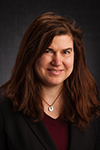 Christina M. Celluzzi, PhD, MS
Christina M. Celluzzi, PhD, MSSenior Manager, Cellular Therapies, AABB Center for Cellular Therapies, Bethesda, MD
Dr. Celluzzi has a background in biomedical research which includes basic and applied research in cellular therapy (CT). She holds BS and MS degrees in Microbiology and earned her PhD in Medical Sciences at the University of Nijmegen in The Netherlands where she studied malarial immunity. Her entry into cellular therapies began with seminal research at the University of Pittsburgh investigating the role of dendritic cells (DC) in cytotoxic T-lymphocyte induction in melanoma. She continued in CT with the development of DC closed-culture systems and supporting assays for clinical application as research scientist and faculty member at the American Red Cross Holland Biomedical Laboratory and University of Maryland School of Medicine. She applies her more than 25 years of experience to her current position at AABB serving as a resource to its many CT professionals – helping to create and develop CT projects, including the Cellular Therapies Certificate Program.
Disclosure: no relevant financial relationships to disclose.
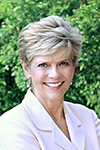 Gayl Chrysler, MBA, RN, BAN
Gayl Chrysler, MBA, RN, BANChrysler Consultants, LLC.
Gayl Chrysler has over 30 years of leadership experience in FDA regulatory-compliant businesses including blood banking, solid organ and tissue procurement, cord blood banking, biotech, and stem cell research. Gayl’s professional experience includes: Director of the Upper Midwest Organ Procurement Organization and American Red Cross Tissue Bank; National Director of Operations for the American Red Cross Cord Blood Program; V.P. of Cellular Technologies and Clinical Affairs at BioE; and Director of Biobanking Sales Strategies at STEMCELL Technologies, Inc. She has served on numerous professional committees, boards of directors and editorial boards, including active AABB membership since 1979. Currently, Gayl is an independent, biomedical consultant.
Disclosure: no relevant financial relationships to disclose.
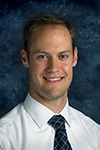 Andrew Fesnak, MD
Andrew Fesnak, MDTransfusion Medicine Physician and Cell Therapy Researcher, University of Pennsylvania, Philadelphia, PA
Dr. Fesnak is the director of Cell Manufacturing and Development in the Clinical Cell and Vaccine Production Facility. He shares medical oversight of the Apheresis Clinic and leads a manufacturing group dedicated to developing next generation cell therapies.
Disclosure: no relevant financial relationships to disclose.
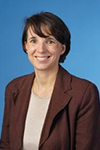
Associate Professor, Department of Pathology, University of Maryland Medical School, Baltimore, MD
Dr. Fontaine has a broad background in transfusion medicine and cellular therapy. Her contributions to the field of cellular therapy are a continuation of her post-doctoral training spent at Harvard Medical School, where she was mentored by pioneers in tissue engineering, Drs. Langer and Vacanti, optimizing new techniques of hepatocyte transplantation for end stage liver diseases in neonates. She obtained her PhD from the University of Illinois in Chicago (UIC) studying pancreatic islet transplantation for patients with type 1 diabetes (T1D) and contributed to the development of the islet cell transplant program at UIC. She served as Chair of the National Committee on Standards for Cellular Therapies for the American Association of Blood Banks (AABB). She currently serves as the co-Chair on the Novel Cellular Therapies and Product Development Subsection for the AABB. Her service on these committees and subtask force has helped to identify knowledge and regulatory gaps that need to be filled for novel cellular therapies to succeed.
Disclosure: no relevant financial relationships to disclose.
 Peiman Hematti, MD
Peiman Hematti, MDDr. Hematti's clinical practice provides care for bone marrow transplant patients. His laboratory research focuses on investigating the immunomodulatory properties of mesenchymal stromal/stem cells (MSCs), specifically their effects on macrophages. His clinical research interest is in the use of MSCs and other novel cellular therapies in bone marrow transplantation and regenerative medicine.
Disclosure: no relevant financial relationships to disclose.
 Achsah D. Keegan, PhD
Achsah D. Keegan, PhDProfessor, Microbiology and Immunology, University of Maryland BioPark, Baltimore, MD
Dr. Keegan received her undergraduate and graduate training at Duke University and Johns Hopkins University Medical School, respectively. As an immunologist, she studies Type II inflammation, an immune response elicited by parasite infections or by allergens, such as pet dander or food. Her work focuses on the mechanism by which two cytokines that control allergic inflammation, interleukin (IL)-4 and -13, mediate their effects in the lung. Using an animal model of asthma, Dr. Keegan’s team examines how signaling pathways activated by these factors control responses to house dust mite, a common household allergen. Targeting these pathways may alleviate allergic asthma symptoms.
Disclosure: no relevant financial relationships to disclose.
 Hanh Khuu, MD
Hanh Khuu, MDMedical Director, Cell Processing Section and Medical Director HLA Laboratory, Department of Transfusion Medicine (DTM), National Institutes of Health (NIH), Bethesda, MD
Dr. Khuu received her undergraduate degree from Auburn University at Montgomery and went on to medical school at the University of Alabama at Birmingham (UAB). After completing an internal medicine internship at the University of Pittsburgh Medical Center, she returned to UAB for anatomic and clinical pathology (AP/CP) residency training and completed a Transfusion Medicine Fellowship. She served at UAB as chief resident in Clinical Pathology. She received additional blood bank training at the NIH DTM and served as staff clinician in the NIH Clinical Center. She is board certified in AP/CP, Transfusion Medicine, and completed American Board of Histocompatibility and Immunogenetics (ABHI) certification. She has compiled and facilitated multiple investigational new drug (IND) applications with respect to cellular therapy product manufacturing and has been responsible for implementation of processes and procedures for compliance with applicable regulations.
Disclosure: no relevant financial relationships to disclose.
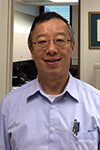 Ping Law, PhD
Ping Law, PhDResearch Scientist, Miltenyi Biotec, GmbH, Gaithersburg, MD
Dr. Law has spent over 20 years in the cell processing area working in academic, commercial and non-profit organizations in medical device, clinical cell processing as well as implementation / translational research procedures using bone marrow, peripheral blood stem cells and cord blood stem cells --- extended to include lymphocytes and NK cells. His expertise includes flow cytometry and clean room operation relating to cell processing. He is an active participant in AABB and is currently an assessor.
Disclosure: due to Dr. Law’s relationship with a commercial interest, continuing medical education credits are not eligible for Module 4.
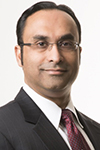 Aby J. Mathew, PhD
Aby J. Mathew, PhDSenior Vice President & Chief Technology Officer, BioLife Solutions Inc., Bothell, WA
Dr. Mathew has been researching low temperature biopreservation since 1994, was part of the founding team of BioLife Solutions, and is a co-developer of BioLife’s biopreservation media solutions for the preservation of cells, tissues, and organs. Dr. Mathew was BioLife’s first Director of Manufacturing, and established BioLife’s initial Quality system. Dr. Mathew is currently active within: AABB, BEST Collaborative, ISCT, ARM, TERMIS, and the Society for Cryobiology. Dr. Mathew is a member of the Advisory Panel of the Parent’s Guide to Cord Blood Foundation, the Scientific Advisory Board of HemaCare Corporation, and the founding Board of Directors of the Cord Blood Association. Dr. Mathew has also contributed to the AABB publications: Practical Handbook of Cellular Therapy Cryopreservation; and Cellular Therapy: Principles, Methods, and Regulations, 2nd Edition.
Disclosure: due to Dr. Mathew’s relationship with a commercial interest, continuing medical education credits are not eligible for Modules 8 and 9.
 Kamal Moudgil, MD, PhD
Kamal Moudgil, MD, PhDDr. Moudgil has over 20 years of research experience in cellular immunology, particularly autoimmunity. Study of the pathogenesis of autoimmunity and its modulation by synthetic/natural products in experimental models of human rheumatoid arthritis and multiple sclerosis are major components of his research program. He has published over 110 scientific articles in journals and over 25 book chapters. In parallel, he has actively been involved in the teaching of immunology to medical, graduate and dental school students. He has served as the section head for the immunology course for medical students at his institution for the past 8 years.
Disclosure: no relevant financial relationships to disclose.
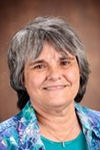 Jo-Anna Reems, PhD, MT(ASCP)SBB
Jo-Anna Reems, PhD, MT(ASCP)SBBProfessor, Research, Division of Hematology and Hematologic Malignancies and Scientific Director of the Cell Therapy & Regenerative Medicine (CTRM) Program, University of Utah School of Medicine, Salt Lake City, UT
Dr. Reems earned her Ph.D. in Biochemistry at the University of Colorado Health Sciences Center and completed a Research Fellowship at Fred Hutchinson Cancer Research Center, where she developed a research focus on understanding the regulatory mechanisms involved in the growth and development of hematopoietic stem and progenitor cells with an emphasis on the process of megakaryocytopoiesis. She has over 15 years of experience in using in vitro techniques to isolate somatic cells (e.g., pancreatic islets, CD34+ cells, T-regs) as well as in expanding and engineering stem/progenitors cells for clinical applications. She has participated on national and international committees to advance cellular therapies that focus on process development and optimization strategies and for developing potency assays as predictors of the in vivo efficacy of cellular products for therapeutic applications.
Disclosure: no relevant financial relationships to disclose.
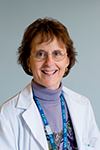 Susan L. Saidman, PhD
Susan L. Saidman, PhDAssociate Professor of Pathology, Director of Histocompatability (HLA) Laboratory, Harvard Medical School and Massachusetts General Hospital, Boston, MA
Dr. Saidman was an HLA technologist in Canada for 7 years prior to graduate school. She received her PhD in Experimental Pathology from the University of Pittsburgh in 1990, and subsequently completed a post-doctoral fellowship in the HLA lab there. She joined the staff at Massachusetts General Hospital in 1992 as Director of the HLA Lab. She has been certified by the American Board of Histocompatibility and Immunogenetics (ABHI) since 1994 and has over 35 years of experience in the field. She is a board member of the American Society for Histocompatibility and Immunogenetics (ASHI).
Disclosure: no relevant financial relationships to disclose.
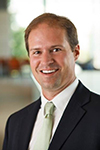 Stephen R. Spellman, MBS
Stephen R. Spellman, MBSDirector, Immunobiology and Observational Research, Center for International and Bone Marrow Research, (CIBMTR), Minneapolis, MN
Stephen Spellman has over 16 years of experience in cellular therapy and hematopoietic stem cell transplantation research. He serves as the Director of the CIBMTR Immunobiology & Observational Research Program and as an Assistant Scientific Director with oversight for the Immunobiology and Graft versus Host Disease Working Committees and Research Sample Repository. Mr. Spellman is also a member of the graduate faculty in the Bioinformatics and Computational Biology program at the University of Minnesota. He has co-authored more than 100 publications and his current research focuses on discerning the immunogenetic and immunobiological factors that influence the outcome of related and unrelated donor and cord blood hematopoietic stem cell transplantation and cellular therapies.
Disclosure: no relevant financial relationships to disclose.
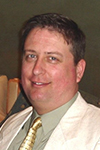 Timothy D. Wood, BA
Timothy D. Wood, BAPresident and Principal Consultant, Cell Therapy Microbiology Consulting, LLC, Snoqualmie, WA
Timothy Wood has over 28 years of experience in microbiology in the cGMP industry. He is Principal Consultant at Cell Therapy Microbiology Consulting designed to address cellular therapies to develop and improve contamination controls, including environmental monitoring (EM) programs and rapid sterility tests. At Dendreon, Tim helped get PROVENGE® immunotherapy through investigational trials, FDA approval, and launched to commercial cGMP facilities. He developed the BacT/Alert® sterility test for PROVENGE® improving method specificity and decreasing detection time. He has worked as a microbiologist at companies including ICOS, Xcyte Therapies, CellPro, and Abbott Laboratories. Tim received his Bachelor's degree in Biology from Pacific Lutheran University, Tacoma, WA.
Disclosure: Consultant – Cell Therapy Microbiology Consulting, LLC.
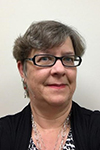 Tami Yonke, MT(ASCP)SBB, M.Ed.
Tami Yonke, MT(ASCP)SBB, M.Ed.Information Support Specialist, St. Louis Cord Blood Bank, St. Louis, MO
Tami Yonke has over 25 years of experience in cellular therapy, blood center operations, and transfusion medicine. In her role as Information Support Specialist, she uses her extensive background to support the IT needs for all aspects of the operation. She gained multi-level experiences in blood center operations with the Missouri-Illinois Region of the American Red Cross with responsibilities for apheresis collections, manufacturing, donor testing and participation on several National projects. She managed the transfusion service at St. Louis University Hospital, a tertiary care teaching facility.
Disclosure: no relevant financial relationships to disclose.